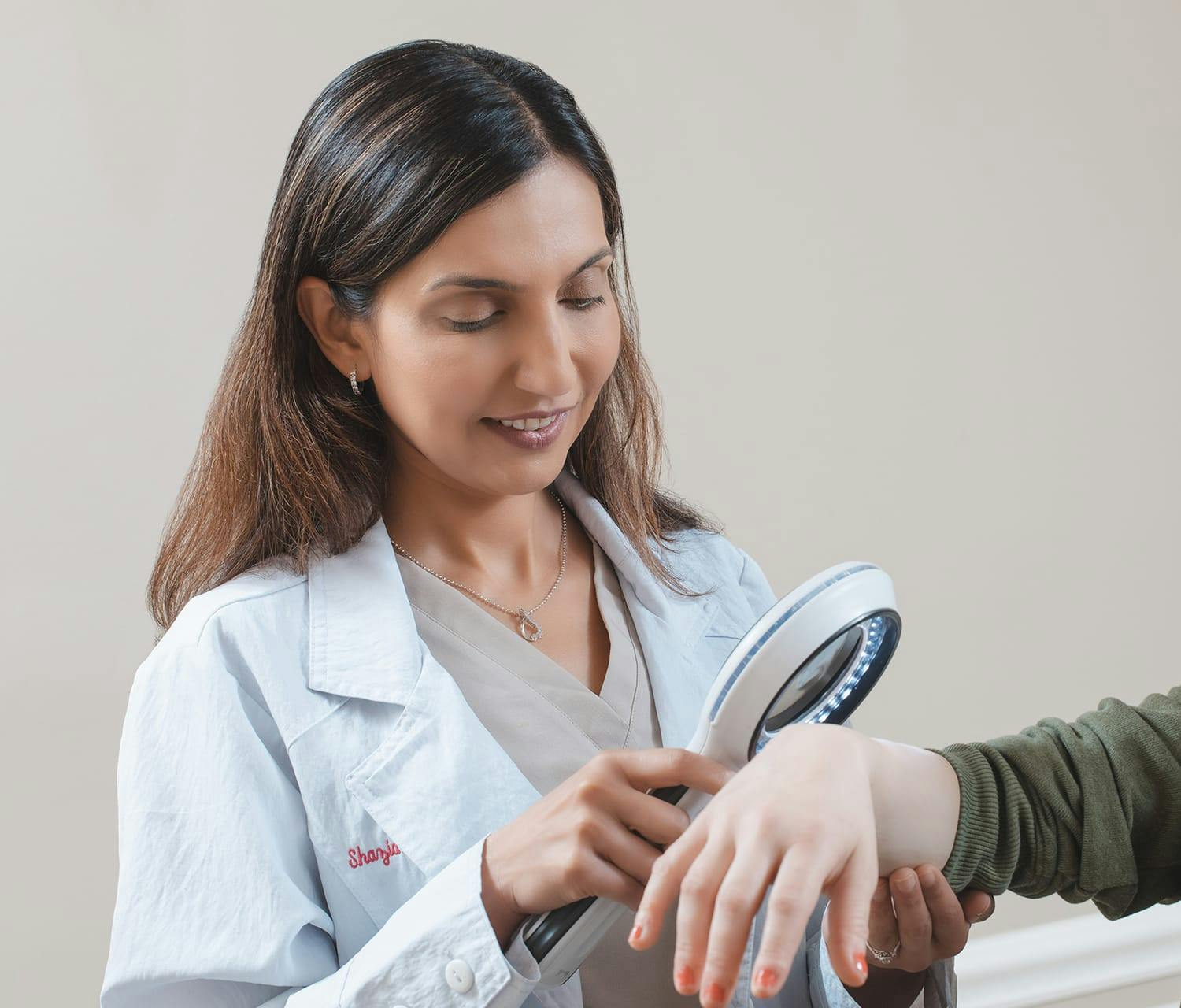Cold sores — also called fever blisters — are a common viral infection. They can be frustrating and uncomfortable, but the team at Certified Dermatology can help you find the relief you deserve.
The Signs and Symptoms
A cold sore usually passes through several stages.
Tingling and Itching
Many people feel an itching, burning, or tingling sensation around their lips for a day or so before a small, hard, painful spot appears and blisters erupt.
Blisters
Small fluid-filled blisters typically break out along the border where the outside edge of the lips meets the skin of the face. Cold sores can also occur around the nose or on the cheeks.
Oozing and Crusting
The small blisters may merge and then burst, leaving shallow open sores that will ooze fluid and then crust over.
Your specific signs and symptoms may vary, depending on whether this is your first outbreak or a recurrence. Symptoms can last for several days, and the blisters can take two to four weeks to heal completely. Recurrences typically appear at the same spot each time and tend to be less severe than the first outbreak.







